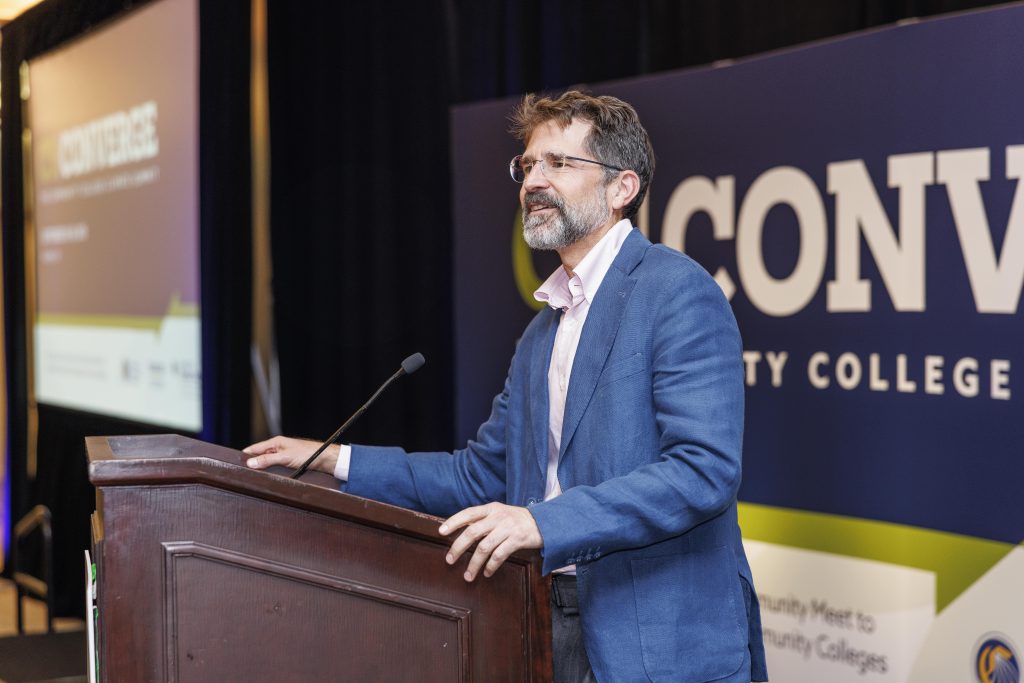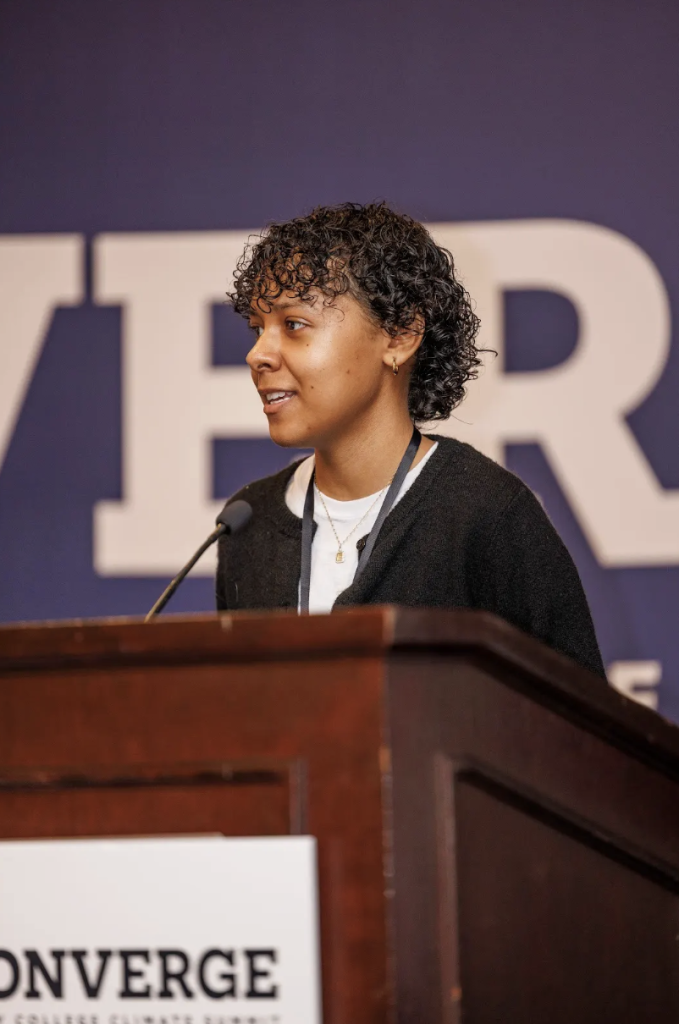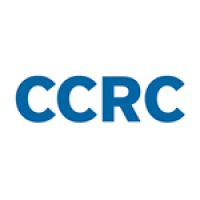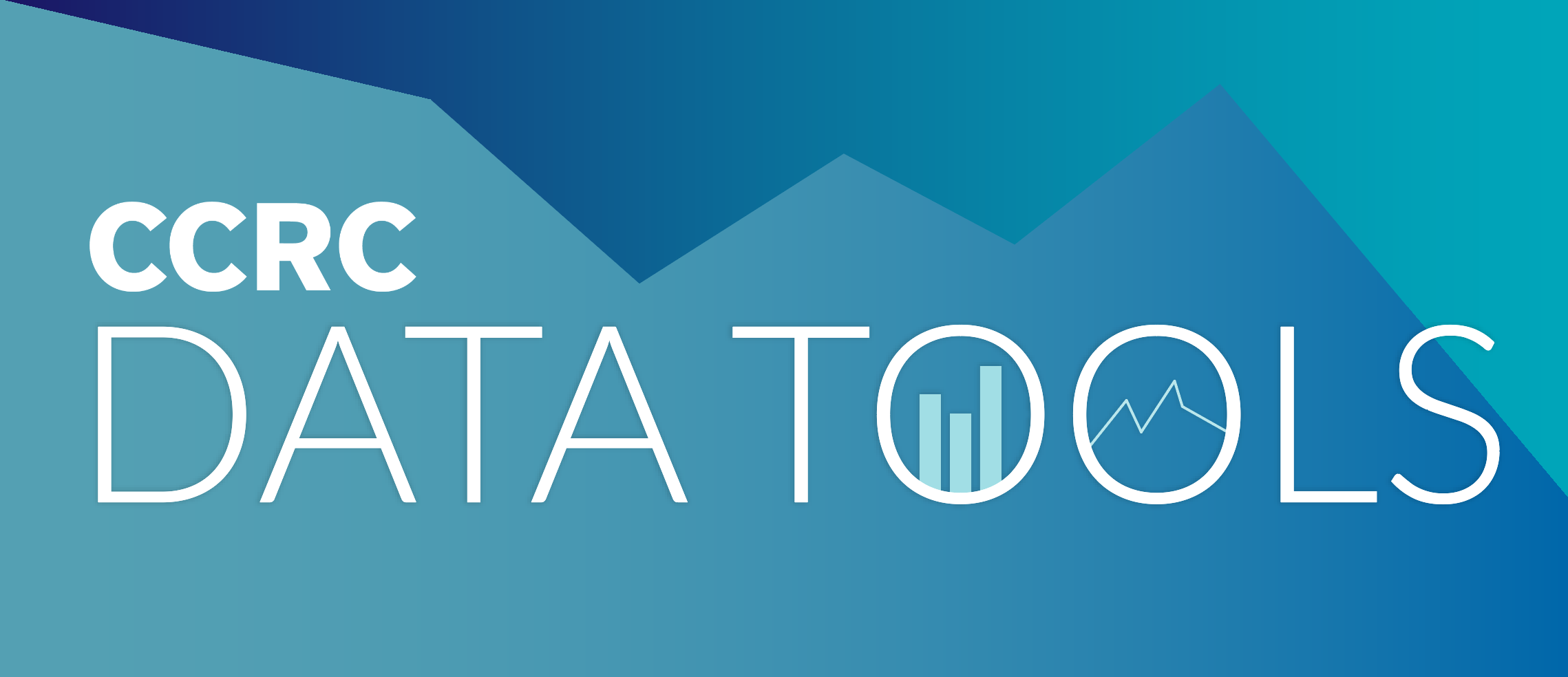By Bret Eynon and Susan Bickerstaff
In recent years, California community colleges have emerged as leaders in climate action. Sonya Christian, chancellor of the 116-campus system, has positioned sustainability as a key priority, and her commitment has encouraged climate-focused initiatives systemwide.
The value of systemic support was on display at a September conference in Anaheim, the second annual C3Converge: The Community College Climate Summit. Co-hosted by the Chancellor’s Office and the Foundation for California Community Colleges, the two-day conference was organized into four strands, corresponding with sustainability pillars of Vision 2030, the Chancellor’s strategic plan: workforce development, curriculum integration, community engagement, and campus sustainability. The nearly 300 attendees and presenters included college presidents, sustainability officers, facilities managers, and faculty and students in life sciences, engineering, social sciences, and other areas.
The conference was upbeat despite federal disinvestment in renewable energy and sustainability projects. In the opening session, Jeff Clary, senior director of the foundation’s Center for Climate Futures, discussed the tensions of this moment, describing Team Doom and Team Hope engaged in a “tug of war.” Team Doom worries that budget cuts and White House pressure might mean we can no longer talk openly about the climate crisis; but Team Hope argues that concrete, on-the-ground projects are succeeding, and that surveys show students, faculty, and families still want to learn about climate solutions.

Colleges
In the end, Clary said, Team Hope wins by pointing out the power of connecting the moral imperative for climate action with an emphasis on “the material” aspect of climate response, such as workforce development. Clary’s remarks set up a theme of hope, pragmatism, and resilience that resonated throughout the conference’s four strands.
Four Strands of the Climate Summit
Workforce Development: Workforce sessions showcased the promise of creative partnerships to address employment needs in emerging fields. In one session, representatives of Blue Economy Climate Action Pathways (BECAP), a consortium of 14 LA-area community colleges and workforce development leaders, discussed their focus on strengthening economic growth in sustainable aquaculture, renewable ocean energy, and coastal resilience. Panelists showed how the Port of Los Angeles will need middle-skill technicians to achieve its zero emissions goal. Faculty discussed cross-college collaboration to foster creativity, share resources, and reduce duplication in regional program offerings.
Curated by Carla Grandy, lead member of the Chancellor’s Climate Fellows, a statewide team implementing the chancellor’s 2030 vision, the workforce strand also highlighted the diverse careers contributing to climate action. Shana Epstein, director of public works for Beverly Hills, discussed how public utilities employees (electricity, water, parks, sanitation, transit) find themselves on the front lines of environmental action. Cameron Sublett at the Foundation for California Community Colleges showcased CCRC’s new data tool, which allows users to find top jobs in their community in infrastructure, agriculture, and energy—three key fields in climate adaptation and mitigation. Practitioners and industry partners spoke about aligning curricular programs with the skills employers seek. In a session on zero-emission transportation, Mark Bernbeck, an auto tech instructor at Evergreen Valley College in San Jose, explained that while traditional automotive technician training prepares students for a single job, programs that include principles of electrification prepare students to work on cars, marine transportation, public transportation, and charging infrastructure.
Campus Sustainability: Sessions in the Campus Sustainability strand highlighted community college efforts to reduce carbon emissions and protect natural resources. At one session, representatives from three colleges described how renewable-supported microgrids offer cost savings and provide a reliable power source during extreme weather events. David Liebman, a Chancellor’s Climate Fellow, highlighted Santa Rosa Junior College’s solar-powered microgrid, which is designed to optimize energy use and to create a resilient power system for a community vulnerable to wildfires. Speakers from Mt. San Antonio College in Walnut described how students contributed to habitat restoration and EV infrastructure—efforts that support the college’s sustainability goals and provide meaningful hands-on learning experiences.
Curriculum Integration: The purpose of curriculum integration, as outlined in Vision 2030, is to “ensure that climate literacy is embedded across disciplines, helping students understand the science, urgency, and solutions related to climate change” and “help all students connect climate issues with their own academic and career goals.”
One session highlighted professional development programs for faculty who are rethinking courses to achieve this goal. The LA Community College District, for example, supports faculty at nine colleges with the Environmental Equity Demonstration Project. Project directors Beth Abels and Xiao Behlendorf described how campus liaisons guide interdisciplinary, campus-based communities of practice. In 2024-25 they worked with 43 faculty across 30 disciplines, reaching more than 1,500 students; in 2025-26 they anticipate reaching more than 7,000 students. San Diego’s district runs a similar program.
Feedback from LA faculty has been enthusiastic. “I learned that I don’t need to be a content expert in order to include the topic of climate change,” explained one faculty member. “I only need to be interested in learning about it and sharing my curiosity with students.”
Statewide, such efforts are bearing fruit. Holly Bailey-Hofmann, another Chancellor’s Climate Fellow, reported that 80% of the system’s campuses have a climate-related degree or certificate. And 39% of campuses have integrated climate into at least one non-STEM course.
Community Engagement: Located in communities vulnerable to storms, heat, and fires, community colleges can serve as climate resilience hubs, helping their communities prepare for, mitigate, and recover from climate disasters. Sessions in the Community Engagement strand discussed this role in addition to other ways community colleges are helping communities develop more sustainable approaches to transportation and land-use.
One plenary highlighted ways students could serve as climate ambassadors, building the campus-community links essential to effective resilience hubs. The California Climate Action Corps engages students in community service focused on sustainability, including environmental education, greening public lands, and river and stream restoration. Students not only learn about climate issues, they also get a living allowance and recognition on their transcripts. Six hundred students have already taken part, partnering with 162 local climate action organizations.
Luis Arenas Rodriguez, an engineering student at West Los Angeles College (WLAC), spoke at the conference about his “game-changing” experience with the nonprofit organization Amigos de los Rios.
“I had the opportunity to lead volunteer teams on green infrastructure projects such as installing irrigation bubbler systems, bioswales, permeable concrete, and planting native species in schools and community spaces,” he said. “These experiences changed the way I see engineering—no longer just as building structures, but as building resilience and equity in underrepresented communities.”
Alyna Esteem, a student at Riverside Community College, underscored Rodriguez’ point. “Classes and reading about climate change are crucial,” she said. “But when you’re working to address it, you feel it and understand it at another level.”

Students Join Team Hope
Rodriguez, Esteem, and other students had a big presence at the conference. Esteem, the Chancellor’s Student Climate Fellow, led a well-received session on the climate impacts of artificial intelligence data centers and moderated a plenary on the student experience. “We need more classes and education about climate,” Esteem explained. “And we need to involve more students in leadership roles.”
Herbert Jimenez, from WLAC, said he learned a lot from the conference. “Our water systems are depleting fast. It’s not sustainable. Also, I was really excited to see all the different ways that colleges are addressing climate and the environment.”
Esteem agreed that the conference was inspiring. “My biggest takeaway,” she reflected afterwards, “was seeing so many people working on ways to deal with climate change.” Social media, she said, “paints a grim picture.” But the diverse and sustained work she saw at the conference, the “tangible changes” that California community colleges are working on, strengthened her sense of possibility. “There are a lot of things we can do,” she said. “I’m definitely with ‘Team Hope.’”
Bret Eynon retired in 2019 from LaGuardia Community College (CUNY), where he taught history and served as associate provost for learning innovation. Eynon now serves Achieving the Dream as a teaching and learning coach and Georgetown University as a senior fellow for climate action in higher education. Susan Bickerstaff is a senior research associate with CCRC.





